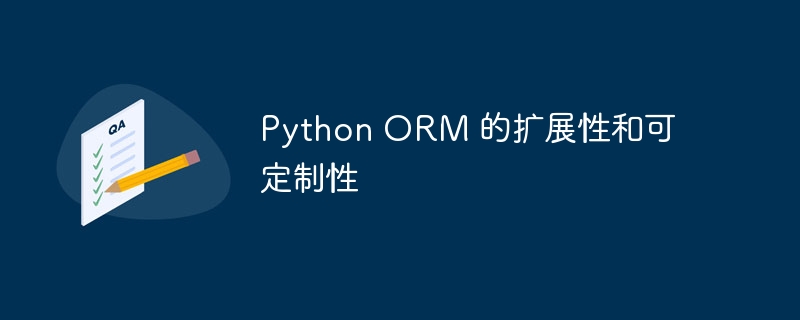

Object Relational Mapping (ORM) is a popular technology in python that allows developers to use Object-oriented method to operate the relational database. Python ORM The scalability and customizability of the framework determine its applicability in actual projects.
Extensibility
Extensibility refers to the ability to easily add new features or integrate external libraries. Python ORM frameworks typically provide extensibility through the following mechanisms:
Customizability
Customizability refers to the ability to modify ORM behavior to meet specific project needs. Python ORM frameworks typically provide the following customizable options:
Benefits of scalability and customizability
Choose the appropriate ORM framework
When choosing a Python ORM framework, consider the following factors to evaluate its extensibility and customizability:
in conclusion
The extensibility and customizability of the Python ORM framework are key considerations and help meet the needs of complex projects. These frameworks support extensions by providing plugin systems, abstraction layers, inheritance, and other mechanisms. In addition, customizable options such as custom queries, fields, and query sets enable developers to adjust ORM behavior to meet project-specific requirements. When choosing a framework, it is crucial to assess your project needs and choose a framework that provides the required extensibility and customizable functionality.
The above is the detailed content of Extensibility and customizability of Python ORM. For more information, please follow other related articles on the PHP Chinese website!
 What are the five types of aggregate functions?
What are the five types of aggregate functions?
 How to check download history on TikTok
How to check download history on TikTok
 How to use the length function in Matlab
How to use the length function in Matlab
 How to implement h5 to slide up and load the next page on the web side
How to implement h5 to slide up and load the next page on the web side
 Do you know if you cancel the other person immediately after following them on Douyin?
Do you know if you cancel the other person immediately after following them on Douyin?
 mongodb startup command
mongodb startup command
 Implementation method of js barrage function
Implementation method of js barrage function
 Scope permission opening method
Scope permission opening method




